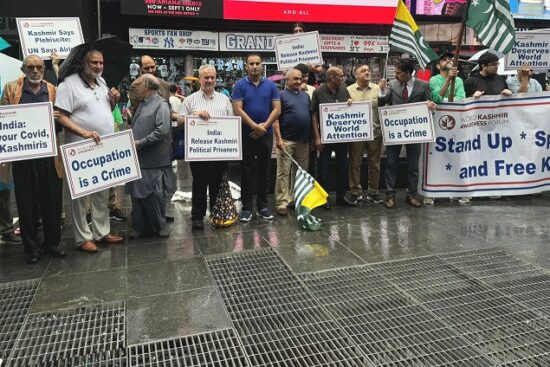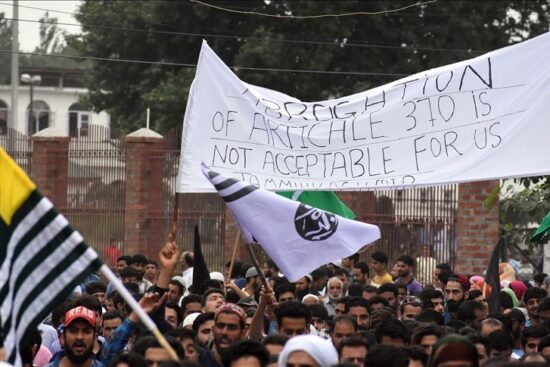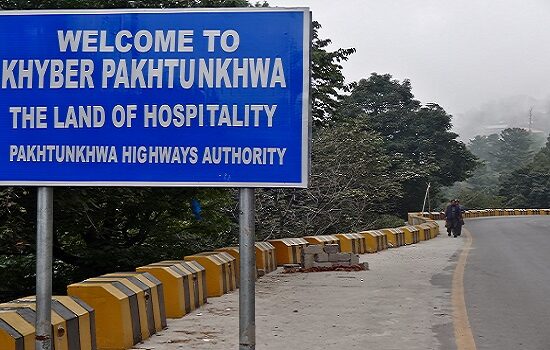
| The rise of populist leaders like Donald Trump, Jair Bolsonaro, Narendra Modi, and Imran Khan has reshaped global politics, leading to increased polarization, undermining of democratic institutions, and short-term policy focus. These leaders appeal to ordinary people by opposing elites, but their divisive rhetoric and governance can erode civil liberties, weaken democratic norms, and create long-term instability both domestically and internationally. |
In recent years, the global political landscape has been significantly shaped by the rise of populist leaders and the cult followings they cultivate. These figures, characterized by their charismatic leadership and often polarizing rhetoric, have managed to capture the hearts and minds of large segments of the population, leading to a shift in political dynamics worldwide. From Donald Trump in the United States to Jair Bolsonaro in Brazil, Narendra Modi in India, and Imran Khan in Pakistan, the influence of populism has profound and far-reaching consequences.
Populism, at its core, is a political approach that seeks to appeal to the ordinary people who feel that their concerns are disregarded by established elite groups. Populist leaders often position themselves as the voice of the common man, fighting against a corrupt and out-of-touch elite. This narrative is compelling and effective, especially in times of economic uncertainty and social upheaval. However, the rise of populism is not without its drawbacks, as it often leads to increased polarization, undermining of democratic institutions, and erosion of civil liberties.
One of the most prominent examples of populism in recent history is Donald Trump. Elected as the 45th President of the United States in 2016, Trump’s campaign was marked by its anti-establishment rhetoric, promises to “drain the swamp,” and a direct appeal to the frustrations and fears of a significant portion of the American electorate. His presidency saw a marked increase in political polarization, with deep divisions within American society on issues ranging from immigration to climate change. Trump’s frequent attacks on the media and democratic institutions, such as the judiciary and election processes, have left a lasting impact on the American political system, raising concerns about the resilience of its democratic norms.
Similarly, in Brazil, Jair Bolsonaro’s rise to power was fueled by a wave of populist sentiment. Bolsonaro, a former military officer, capitalized on widespread dissatisfaction with the political establishment, particularly in the wake of major corruption scandals involving top officials. His administration has been characterized by controversial policies, particularly concerning environmental protection and indigenous rights. Bolsonaro’s approach to handling the Amazon rainforest, for instance, has drawn international criticism and raised alarms about the long-term environmental impact.
In India, Narendra Modi’s tenure as Prime Minister has seen the consolidation of a strong populist leadership style. Modi, who comes from the right-wing Bharatiya Janata Party (BJP), has successfully crafted a narrative that resonates with many Indians, portraying himself as a leader who understands the plight of the common man. However, his leadership has also been marked by divisive policies and rhetoric, particularly concerning religious minorities. The implementation of the Citizenship Amendment Act (CAA) and the National Register of Citizens (NRC) has sparked widespread protests and fears of discrimination against the Muslim population in India. Furthermore, Modi’s handling of the Kashmir issue and the revocation of its special status has added to regional tensions, with significant implications for India-Pakistan relations.
In Pakistan, Imran Khan’s rise to power reflects the populist trend seen globally. A former cricket star turned politician, Khan’s appeal lies in his image as an outsider challenging the entrenched political elite. His party, Pakistan Tehreek-e-Insaf (PTI), won the 2018 general elections with promises of a “New Pakistan,” focusing on anti-corruption, economic reforms, and social justice. However, Khan’s tenure has been fraught with challenges, including economic instability and allegations of political repression. His populist rhetoric has also led to increased polarization within Pakistani society, and his government’s handling of dissent and criticism has raised concerns about the state of democracy and freedom of expression in the country.
The rise of populism is not confined to these leaders alone. In Europe, figures like Marine Le Pen in France and Viktor Orbán in Hungary exemplify the populist wave sweeping across the continent. Le Pen’s National Rally party has gained significant traction by advocating for stringent immigration controls and nationalist policies. Orbán’s leadership in Hungary, meanwhile, has been marked by a systematic erosion of democratic institutions, curtailing of media freedom, and a shift towards authoritarianism under the guise of protecting national sovereignty and cultural identity.
The detrimental effects of populism and cult following on the world and the region are manifold. Firstly, populist leaders often undermine democratic institutions and norms in their pursuit of power. By casting doubt on the legitimacy of elections, attacking the judiciary, and discrediting the media, they weaken the very foundations of democracy. This erosion of trust in democratic processes can lead to long-term instability and governance crises.
Secondly, populism exacerbates social and political polarization. By appealing to specific segments of the population and demonizing others, populist leaders create an “us versus them” mentality. This polarization can manifest in increased social tensions, hate crimes, and even violence. The divisive rhetoric used by these leaders often targets minorities and vulnerable groups, leading to a deterioration of social cohesion and increased marginalization.
Thirdly, the focus on short-term populist gains often comes at the expense of long-term policy planning and governance. Populist leaders tend to prioritize policies that yield immediate political benefits, often neglecting critical issues such as environmental sustainability, healthcare, and education. This shortsighted approach can have severe consequences for future generations, as seen in Brazil’s handling of the Amazon rainforest under Bolsonaro’s administration.
Moreover, the international implications of populism are significant. The rise of populist leaders can lead to a more fragmented and unpredictable global order. Populist leaders often pursue unilateral and nationalist policies, undermining multilateral institutions and agreements. This can lead to increased geopolitical tensions and reduced cooperation on global challenges such as climate change, pandemics, and international security.
In conclusion, while populism and cult followings may offer immediate political gains and resonate with certain segments of the population, their long-term effects on the world and the region are largely detrimental. The erosion of democratic institutions, increased polarization, and short-term policy focus pose significant challenges to governance and social cohesion. As the global political landscape continues to evolve, it is crucial for societies to recognize these risks and work towards fostering inclusive and resilient democratic systems that can withstand the allure of populist rhetoric and leadership



















Comments (2)
temp mailsays:
August 16, 2024 at 1:59 amYour blog is a shining example of excellence in content creation. I’m continually impressed by the depth of your knowledge and the clarity of your writing. Thank you for all that you do.
myflixersays:
August 24, 2024 at 8:39 amThank you for the auspicious writeup It in fact was a amusement account it Look advanced to far added agreeable from you However how can we communicate